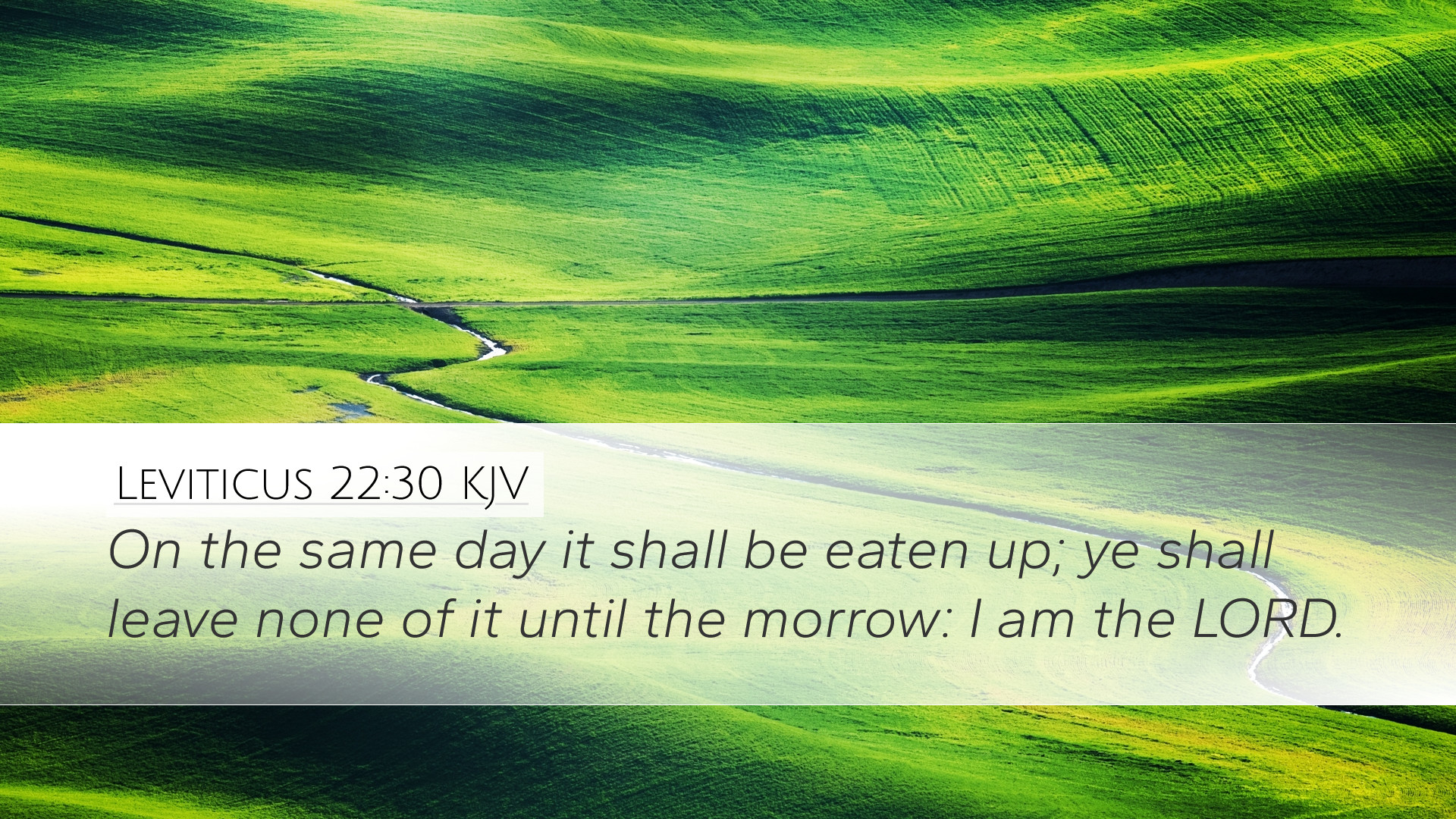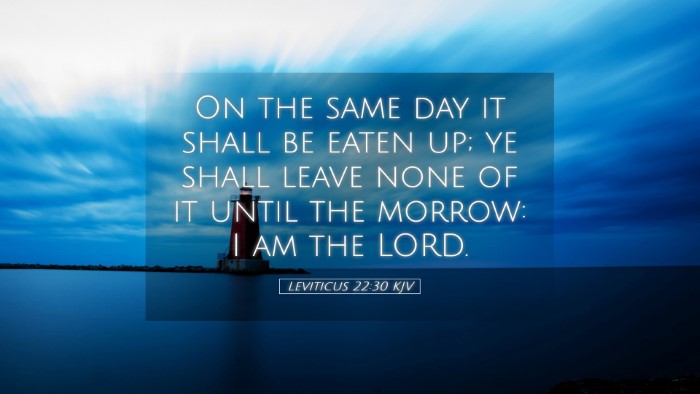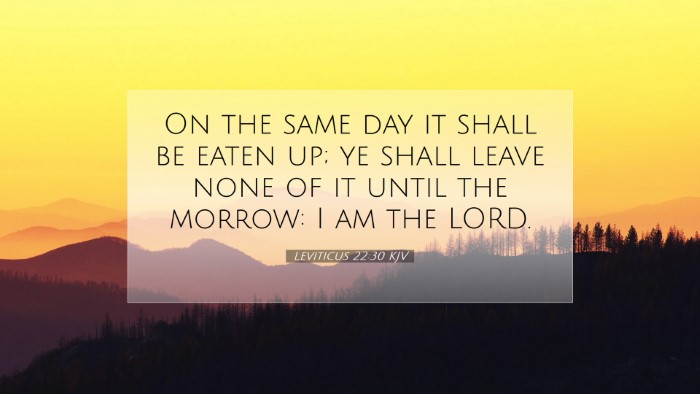Commentary on Leviticus 22:30
Bible Verse: "On that same day it shall be eaten; you shall leave none of it until morning. I am the LORD."
Overview
Leviticus 22:30 highlights the importance of the regulations pertaining to sacrificial offerings in the context of worship. This verse emphasizes strict adherence to God's commands regarding the proper consumption of sacrificial meals, reinforcing the broader themes of holiness and obedience present throughout the book of Leviticus.
Matthe Henry's Commentary Insights
Matthew Henry, in his comprehensive commentary, provides several insights regarding this text:
-
Divine Authority:
Henry notes that the directive to consume the sacrifices on the same day underscores God's authority and the necessity for His people to follow His commandments precisely. The insistence on consuming the sacrifice within a specified time reflects not only obedience but also reverence towards God.
-
The Nature of Sacrificial Meals:
He elaborates on the significance of the sacrificial meal as a communal act of worship. Sharing in the meal symbolizes fellowship with God and the community among those who participate in the offering. The stipulation to eat none of it until morning indicates the sacredness and exclusivity of the sacrifice to that day.
Albert Barnes' Commentary Insights
Albert Barnes provides a complementary perspective that enriches the understanding of this verse:
-
Symbolism of Timing:
Barnes interprets the timing of the meal as representing the immediacy of one’s response to divine grace. It calls the worshipper to take seriously the covenant relationship with God, emphasizing the privilege and responsibility attached to participation in sacred acts.
-
Preservation of Sacredness:
He also discusses that leaving none of the offering until morning served as a safeguard against irreverence or negligence. The idea is that sacred offerings should not be treated lightly; they must be consumed with the proper attitude reflecting gratitude and solemnity.
Adam Clarke's Commentary Insights
Adam Clarke deepens the examination of this verse by illuminating its theological dimensions:
-
The Responsibility of Worshippers:
Clarke emphasizes the responsibility of the worshippers to ensure that their participation aligns with God's directives. By mandating that the sacrifice be consumed the same day, it illustrates the urgency and seriousness of the commitment to God and His covenant.
-
Reflective of Christ's Sacrifice:
Clarke also draws parallels between these sacrificial practices and the ultimate sacrifice of Christ. He highlights that just as these offerings were to be consumed without delay, believers today are called to engage actively with the sacrifice of Jesus, acknowledging its significance in their lives without procrastination.
Theological Implications
This verse resonates with broader theological implications pertinent to both Old Testament worship and New Testament faith:
-
Covenant Relationship:
The call to follow God's commands illustrates the nature of the covenant—the relationship between God and His people that is based on mutual fidelity.
-
Holiness and Separation:
The requirements for consuming the offerings symbolize a call to holiness and separation from common practices. They remind believers to act in ways that reflect God’s holiness in their lives.
-
Urgency of Faith:
Just as the Israelites were required to eat the offerings on the same day, so Christians are reminded to actively partake in the life, death, and resurrection of Christ with urgency and sincerity.
Conclusion
In conclusion, Leviticus 22:30 serves as a powerful reminder of the holiness required in worship and the responsiveness expected from God's people. Through the insights of Matthew Henry, Albert Barnes, and Adam Clarke, we glean a multifaceted understanding of the importance of obedience to divine regulations, the communal nature of worship, and the urgency with which we are to embrace and participate in our relationship with God. The commands given to ancient Israel continue to resonate within the life of the church today, calling believers to a deeper devotion and reverence for God’s sacrificial love.


